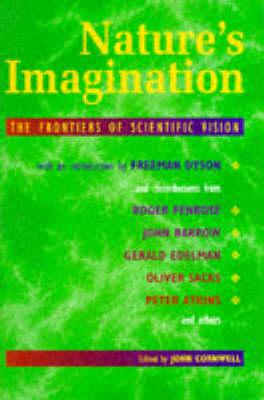Overview
Scientific reductionism, often defined as a method of understanding the whole by examining the parts, has had some spectacular success since the early 19th century, and is deemed to impose a deterministic non-anthropocentric immutable nature on the Universe. In the later 20th century, many discoveries and hypotheses in both biological and cosmological systems have forced a re-evaluation of the scientist's traditional mind set. Eminent scientists come together in this volume to examine and discuss these issues, and to give illuminating examples.
Full Product Details
Author: John Cornwell
Publisher: Oxford University Press
Imprint: Oxford University Press
Dimensions:
Width: 15.00cm
, Height: 2.10cm
, Length: 23.00cm
Weight: 0.555kg
ISBN: 9780198517757
ISBN 10: 0198517750
Pages: 224
Publication Date: 01 March 1995
Audience:
College/higher education
,
Professional and scholarly
,
Postgraduate, Research & Scholarly
,
Professional & Vocational
Format: Hardback
Publisher's Status: Active
Availability: To order

Stock availability from the supplier is unknown. We will order it for you and ship this item to you once it is received by us.
Reviews
All the components of a long-running blockbuster are here in abundance....A collection of intellectual vignettes welded together into a drama that anyone interested in complex systems and the philosophy will want to read and savor....As the wise old sage Freeman Dyson states in the introductory chapter, 'Science is an art form and not a philosophical method.' This book is one of the strongest testaments to that belief. Read and enjoy.--Nature
Erudite essays that explore the pros and cons of reductionism in science. There have been rumblings in the halls of academe that reductionism - in which the whole is explained by a dissection of its parts - will not remain the dominant mode of doing science. Biologists speak of the need for integrative biology ; medicine has its adherents of holistic approaches. To explore the issue, Cornwell, director of the Science and Human Dimension Project at Jesus College, Cambridge University, assembled a stellar cast of scientists and philosophers for a 1992 symposium. Physicist Freeman Dyson leads off with an essay describing scientists as artists striving against a given culture; he also stumps for multiple visions rather than a single view of science. There follow a number of essays describing how the turn-of-the-century quest to reduce all of mathematics to a few pure axioms was blown out of the water by the intricate theorems of Kurt Godel. Astronomer John Barrow casts doubt on theories of everything and the concept that the universe is a continuum, while Roger Penrose states themes that are later repeated in a series of essays on neuroscience and artificial intelligence. These have to do with whether mind equals brain, whether the brain is a computer, and what is meant by computability. There is steep sledding with Nobelist Gerald Edelman and colleague Giolio Tononi's exposition of the theory of neuronal group selection-steep enough to require a following explanatory essay by none other than Oliver Sacks. The upshot is that, with the exception of a couple of spirited voices championing reductionism, the authors declare, The king is dead, long live the replacement - which Edelman, in a concluding essay far more pithy than his first, describes as a second enlightenment that can celebrate human freedom. Some nuggets here for philosophers of science, neuroscientists, mathematicians, and computer folks - but one wonders if maybe Cornwell didn't stack the deck a bit and if a different cast might have come up with a different consensus. (Kirkus Reviews)
All the components of a long-running blockbuster are here in abundance....A collection of intellectual vignettes welded together into a drama that anyone interested in complex systems and the philosophy will want to read and savor....As the wise old sage Freeman Dyson states in the introductory chapter, 'Science is an art form and not a philosophical method.' This book is one of the strongest testaments to that belief. Read and enjoy. --Nature<br>
All the components of a long-running blockbuster are here in abundance....A collection of intellectual vignettes welded together into a drama that anyone interested in complex systems and the philosophy will want to read and savor....As the wise old sage Freeman Dyson states in the introductory chapter, 'Science is an art form and not a philosophical method.' This book is one of the strongest testaments to that belief. Read and enjoy. --Nature
Author Information
About the Editor: John Cornwell is Director of the Science and Human Dimension Project, Jesus College, Cambridge University.



